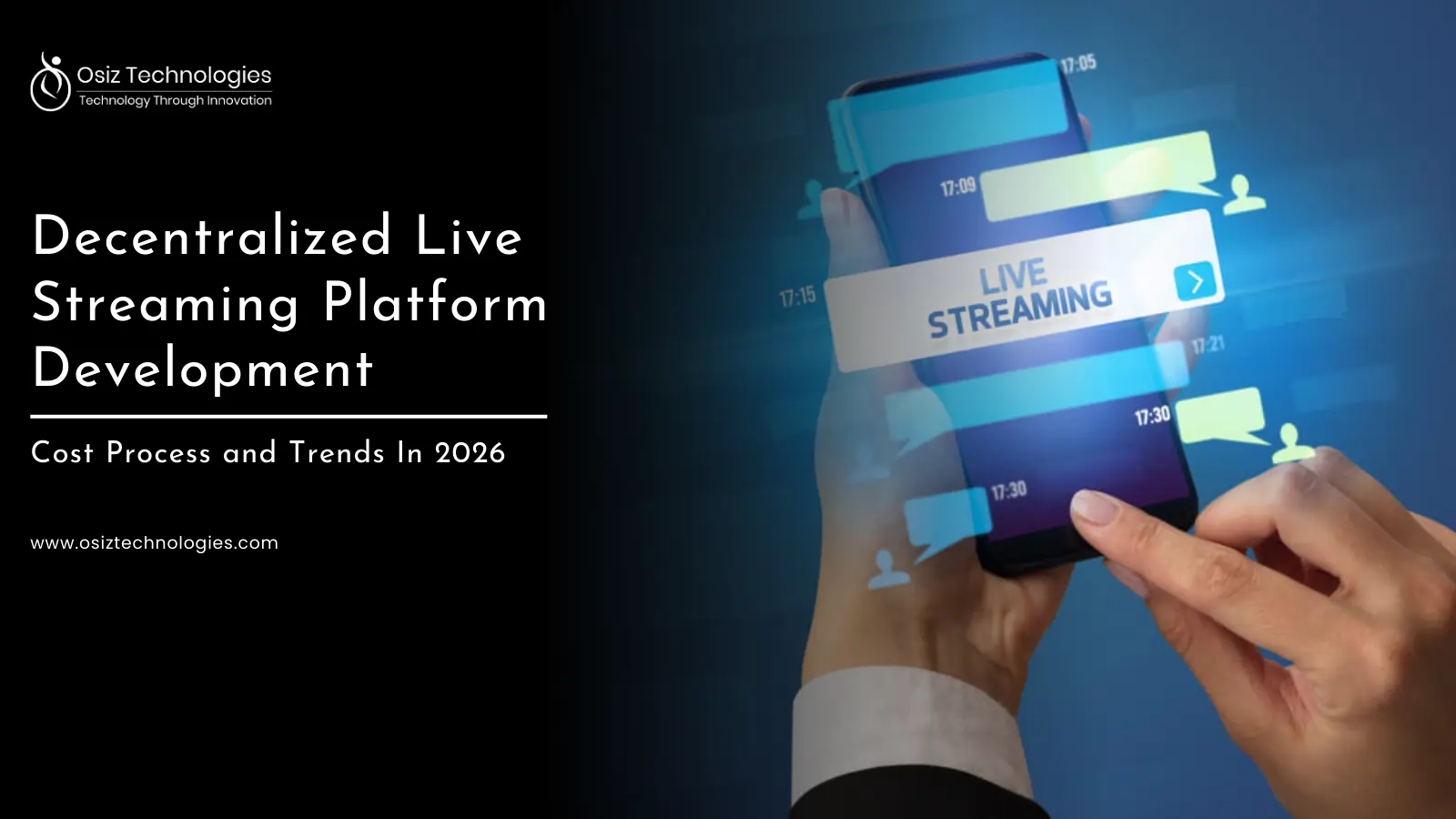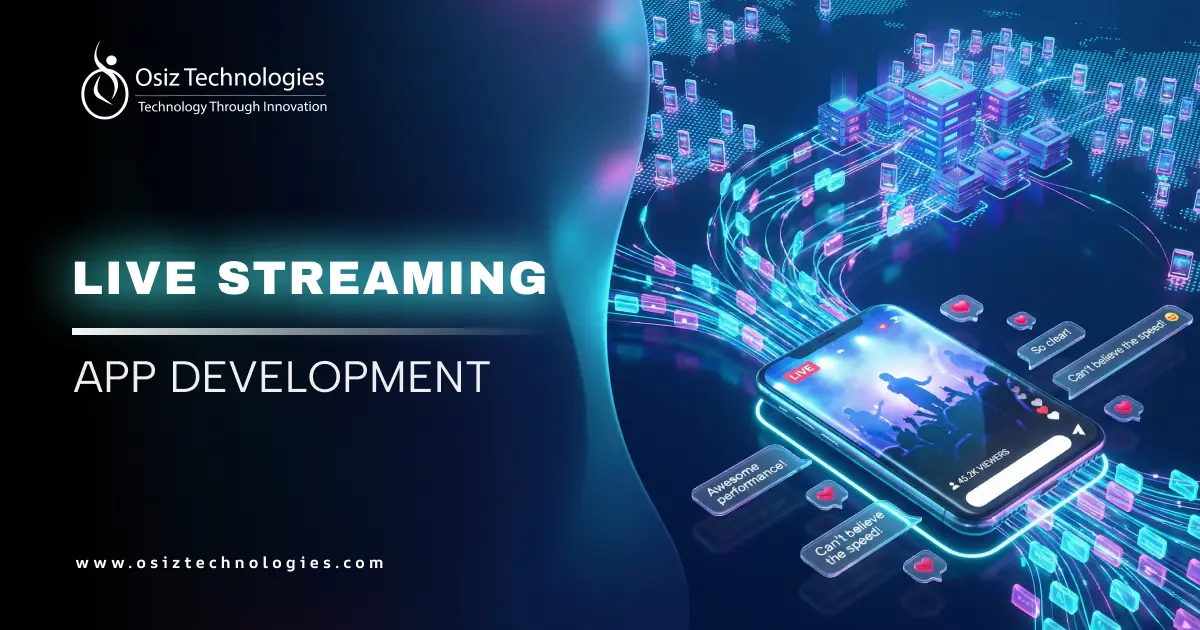Cloud Computing in Healthcare
Cloud computing in healthcare ensures law compliance; enables telemedicine, better provider collaboration, reduction of expenses due to scaled storage systems, improved operational efficiency, and more personalized care aided by sophisticated analytics. It alters patient care by providing safe and effective management of data and immediate access to the patient's data. Embrace cloud computing for improved patient outcomes and protection of sensitive data, and multiply the pace of processes that will trigger innovation in healthcare.
Types Of Cloud Computing in Healthcare
At Osiz, we differentiate Cloud Computing in Healthcare into two different categories. They are “Deployment” and “Distribution.”
1. Deployment: This type of cloud computing in healthcare has four different segments within itself. Starting with Private, it only consists of one healthcare industry or chain to uses cloud computing. Then, the Community can offer cloud computing services for a group of healthcare chains. Also, the Public is the only cloud computing service that is open for all stakeholders to work with. Finally, the Hybrid model can combine with multiple cloud computing systems and provide access for all.
2. Distribution: For this type of cloud computing, we at Osiz provide three different models. They are Software as a Service (SaaS), Infrastructure as a Service (IaaS), and Platform as a Service (PaaS). In the SaaS model, we provide cloud service to deploy applications and operating systems. In the IaaS model, we provide cloud computing services for IT infrastructure. Finally, with the PaaS mode, we offer cloud computing solutions for every application, module, and operating system.
Advantages Of Cloud Computing in Healthcare
Simple Communication: Creating data integrations across the whole healthcare system is the main goal of interoperability, regardless of the source or location of the data. It makes patient data accessible for simple sharing and for gaining knowledge to improve the provision of healthcare. Additionally, medical personnel may access a wide variety of patient data, communicate it with important stakeholders, and provide prompt protocols thanks to cloud computing for healthcare.
Enhances Teamwork: Adoption of the healthcare cloud greatly increases patient, provider, and stakeholder collaboration. Patients no longer need to bring their medical records with them to every doctor's appointment because the Electronic Health Records are stored on cloud servers. The information is easily viewed by the doctors, who can also review the results of past contacts and even communicate real-time information with one another.
Reduces the Cost of Healthcare: The real-time availability of resources like data storage and processing power is one of cloud computing's main advantages in the healthcare industry. They will only be required to pay for the resources they utilize; there are no up-front costs associated with the implementation of the healthcare cloud. Moreover, cloud computing in the healthcare industry offers the best environment for growth without breaking the bank.
Data Ownership for Patients: Cloud computing applications in healthcare democratize data and give patients more control over their health. It serves as a tool for improved patient involvement and education by enabling people to take part in making important decisions about their health. Additionally, medical data can be readily stored and retrieved using cloud-based healthcare.
Strengthens Security: The healthcare sector handles enormous volumes of data regularly, which attracts malevolent actors and raises the possibility of cyberattacks and data breaches. Medical facilities and healthcare providers can guarantee foolproof security with the help of cloud computing applications because these systems can alert you in advance to any suspicious activity.
Improves the Experience for Patients: By providing patients with immediate access to test results, medical records, and even physician notes, cloud computing for healthcare also improves patient engagement in the provision of medical services. Additionally, patients using cloud-based healthcare are protected from being overprescribed or coerced into needless testing; the specifics of both are recorded in the patient's medical data.
Risks Of Cloud Computing in Healthcare
1. Insufficient Expertise: It can be challenging to locate knowledgeable developers with a focus on incorporating new technology into the healthcare software sector. Similarly, finding cloud experts in the healthcare industry is difficult.
2. Restricted Ecosystem: The efficiency of the healthcare sector cannot be achieved just through the use of cloud services. To create an efficient analytics architecture, organizations must integrate cloud computing with data management systems, the Internet of Things, and other technologies.
3. Adoption Difficulties in the Cloud: Modifying the entire operating process is necessary when migrating from old systems to cloud solutions. Everyone engaged in the process needs to be trained by healthcare companies on how technology might improve their day-to-day work.
4. Security Concerns: Using cloud computing in healthcare requires the storing of medical data in the cloud. On the other hand, this makes data breaches more likely. It occurs because, in a normal cloud configuration, the isolation techniques intended to keep data from other healthcare organizations separate may not work, allowing one organization's data to share the server with them.
Best Examples Of Cloud Computing in Healthcare
Since cloud computing has become an integral part of the healthcare industry, many businesses have started leveraging cloud computing solutions. Here are some well-known examples of cloud computing in healthcare.
1. Pfizer - It is a pharmaceutical and biotechnology company that started using cloud computing services at the beginning of 2016 and still running successfully.
2. YouCOMM - It is a newly emerging healthcare and medical technology company that uses cloud computing software to improve patient engagement and communication.
3. Soniphi - It is an application that offers resonant frequency-based personal wellness software. This Soniphi uses cloud computing solutions to easily diagnose patient diseases and treat them.
The Future Of Cloud Computing in Healthcare
Healthcare companies are embracing cloud solutions at a rapid pace to handle large volumes of data, enhance patient care, and optimize operations as technology advances. Furthermore, cloud computing facilitates the assimilation of artificial intelligence into conventional healthcare procedures. Because of this, companies of all sizes are using cloud computing more and more these days for a variety of uses, such as email, virtual desktops, disaster recovery, data backup, software development, testing, and big data analytics. Healthcare systems and networked medical equipment will be seamlessly interoperable in the future, according to future predictions. Ultimately, cloud computing software will keep on impacting the healthcare industry in many positive ways.
Why Choose Osiz’s Cloud Computing in Healthcare?
Searching for risk-free, cloud-based healthcare solutions? When you work together, we can help businesses take advantage of all the benefits that cloud computing has to offer, including cost savings, improved performance, high security, and streamlined delivery. We have a team of excellent cloud developers who are well-known for offering healthcare software development services. So, stop worrying and contact Osiz to boost your healthcare industry with our renowned Cloud computing Solutions.
Our Major Services are:
- AI Development
- Metaverse Development
- Game Development
- Crypto exchange Development
- Blockchain Development
- VR Development
Listen To The Article












